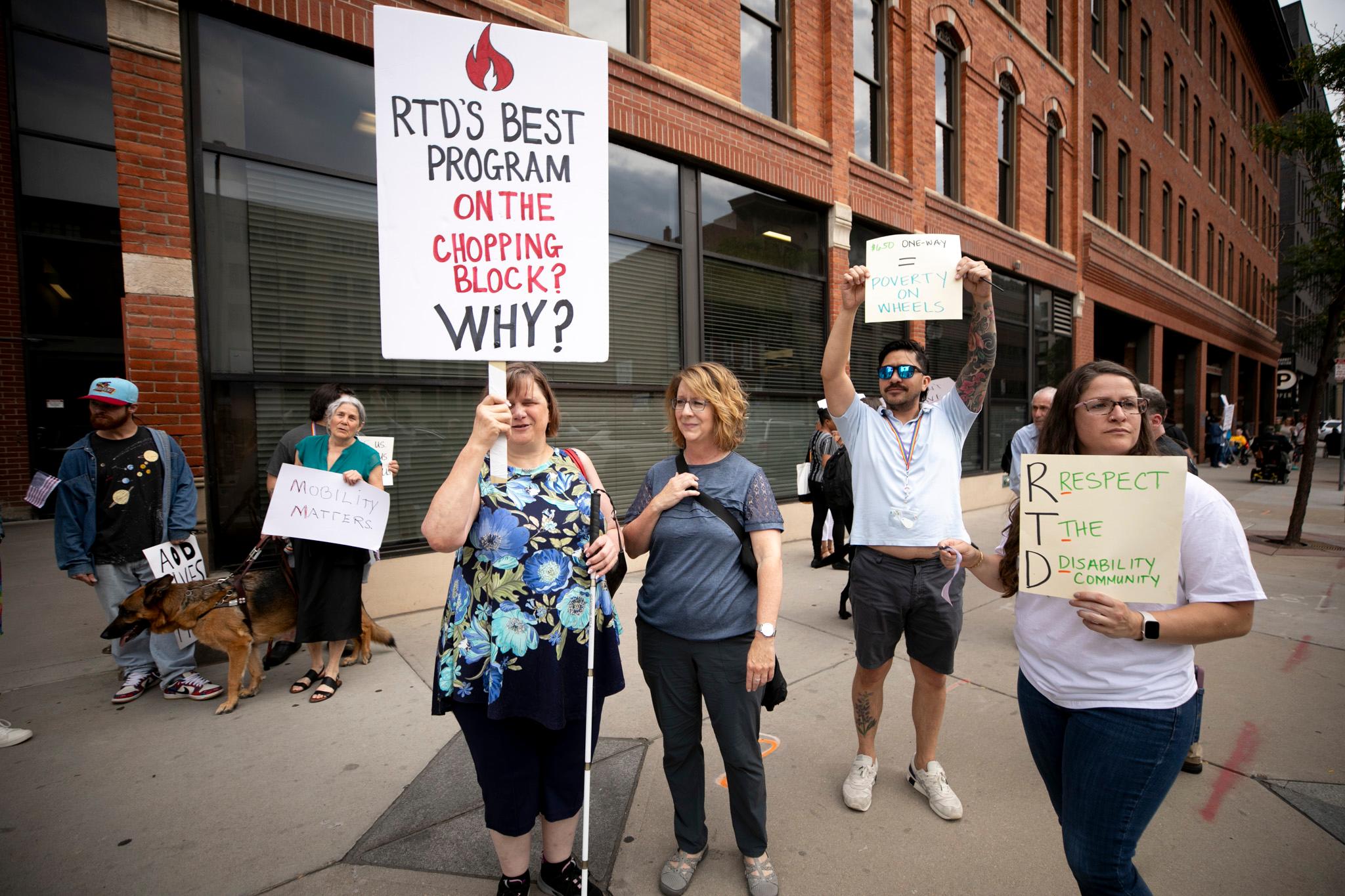The Regional Transportation District's elected leaders will consider cutting funding and raising fares for Access-on-Demand, a service for people with disabilities.
Many riders say the paratransit service has transformed their lives since it launched in 2020, but RTD staff say it’s gotten too expensive. The RTD Board of Directors will consider potential changes tonight — and the proposal already has drawn sharp backlash.
“An attack on our transport is an attack on our freedoms. Don't take away our freedoms and our rides just because we can't drive,” said Chelsea Cook, an Access-on-Demand user, speaking to RTD’s directors during a July meeting.
The program allows people with disabilities — those who qualify for RTD’s paratransit services — to use certain ride-share and taxi companies, including Lyft, free of charge. RTD fully subsidizes the cost of any ride under $25.
But with the program’s popularity and costs rising, RTD may now introduce a base charge of $6.50 per ride, or less for people who qualify for income-based discounts. The directors are also considering whether to limit the subsidy to $20 per ride.
The changes would take effect in January — a prospect that riders fear will disrupt their schedules and finances. People who commute with the service might end up paying $250 per month, assuming they’re riding twice on each weekday.
Mary Henneck said Access-on-Demand has helped her son find a job, since he couldn’t use RTD’s fixed-route buses or trains.
“Once Access on Demand became available, he was able to get employed by an organization that was not right on the route,” she said. “He could get curb-to-curb service from where he lived to his employer. And that made a world of difference for him.”
RTD also offers free service via Access-a-Ride, a passenger van service for people with disabilities. But unlike Access-on-Demand, the van service is only available within a certain distance of bus and rail lines. Passengers also have to book at least a day in advance.
“Access-on-Demand is doing something that works,” said Claudia Folska, a former RTD director who is blind and uses AoD. “The best part of this whole story is, RTD cracked the code — how do we provide the best transit possible to the people who need it the most.”
RTD did not grant an interview for this story. A spokesperson said in an email that, “since multiple amendments and proposals are still under consideration, it’s best to wait until after the Board’s decision to discuss the final details of the program.” But in previous interviews and statements to CPR, RTD staff have said that Access-on-Demand’s costs have ballooned, and they’re worried about the long-term budget implications as RTD struggles with its finances.
RTD projects the changes will save about $5.6 million per year, mostly by bringing in new revenue from the base fare. That represents a reduction of about 37 percent of the program’s projected budget.
Transit and disability advocates have said the board should consider other options, starting with a comprehensive study of all its paratransit services, including its legacy Access-A-Ride, to understand how well they’re all meeting the needs of the region’s disability communities.














